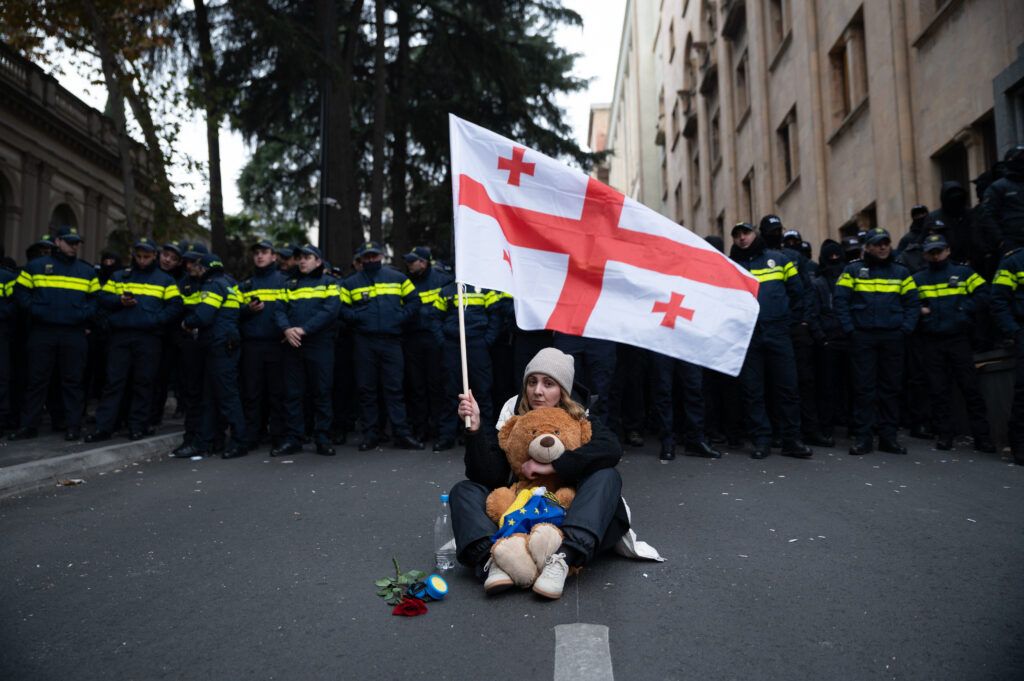Lithuania’s sanctions and Georgia’s sovereignty under Western lens

by Ulvi Nariman
The ongoing protests in Georgia have once again brought the role of the Baltic states into the spotlight. Lithuania, Latvia, and Estonia have actively criticized Georgia's government, with their recent sanctions against ruling officials following a violent crackdown on anti-government demonstrators.
How the Baltics Reflect EU Strategy in the Caucasus
The Baltic states, particularly Lithuania, have historically taken swift action in moments of regional unrest that align with broader Western interests. Lithuania's imposition of sanctions on Georgian officials mirrors the nation's role as a vocal advocate for EU directives, often prioritizing alignment with Brussels over independent policy decisions.
In October, Lithuanian Foreign Minister Gabrielius Landsbergis displayed this alignment in anti-Azerbaijani remarks during a Parliamentary Assembly of the Council of Europe (PACE) session. This underscores Lithuania's readiness to act as a conduit for broader EU and U.S. strategies. Furthermore, the Baltic nations have been visible in Georgia's political landscape, with officials participating in protests and publicly supporting opposition narratives.
The Baltic countries' actions raise questions about the balance of sovereignty and external influence in Georgia's domestic affairs. By imposing sanctions and supporting anti-government demonstrations, the Baltic states reinforce the perception that the West seeks to shape Georgia’s political trajectory. The alignment between Baltic actions and Western objectives highlights how smaller EU members can amplify geopolitical strategies in the Caucasus. The Baltic countries' activism aligns with their role as staunch supporters of Euro-Atlantic integration and democracy promotion, but critics argue that such actions risk exacerbating tensions in Georgia. By imposing sanctions, the Baltic nations signal solidarity with Western allies while pressuring Tbilisi to align more closely with EU and NATO values. However, these interventions also risk deepening polarization within Georgia, echoing patterns seen in Ukraine before the 2014 crisis.
Lithuania’s involvement goes beyond rhetoric, with its actions directly challenging the sovereignty of Georgia’s ruling coalition. This parallels its previous stance on Azerbaijan, where it supported critical narratives and sanctions to serve EU interests. The Baltic nations, particularly Lithuania, are positioning themselves as enforcers of Western strategies, showcasing their readiness to act decisively when EU or U.S. interests are at stake.
For Georgia, the Baltic intervention poses a dilemma. While aspiring to maintain its strategic partnerships with the West, the country faces growing domestic unrest fueled by external influences. The Baltic states’ actions, underpinned by a desire to solidify Western alliances, complicate Tbilisi’s efforts to navigate a path that prioritizes national interests while balancing international expectations. As protests intensify and sanctions bite, the implications for Georgia's political stability are profound. The role of the Baltic states in this unfolding crisis highlights the intricate dynamics of geopolitics in the South Caucasus, where external forces increasingly shape the trajectory of nations striving for autonomy amid global power plays.
Here we are to serve you with news right now. It does not cost much, but worth your attention.
Choose to support open, independent, quality journalism and subscribe on a monthly basis.
By subscribing to our online newspaper, you can have full digital access to all news, analysis, and much more.
You can also follow AzerNEWS on Twitter @AzerNewsAz or Facebook @AzerNewsNewspaper
Thank you!
